.jpg)
What investigative journalism means, how a hypothesis can be formulated, and what sources can be used to obtain unique information—these were just a few aspects that 27 journalists, members of the Network of Investigative Journalists from Moldova, delved into during a training program dedicated to investigative journalism. This training occurred on September 6th and 7th in Chisinau and was organized by GIZ Moldova and the Center for Investigative Journalism. It was part of the program 'Strengthening the Rule of Law and Anti-Corruption Mechanisms in the Republic of Moldova,' co-financed by the European Union, the German Federal Ministry for Economic Cooperation and Development (BMZ), the UK Government, and implemented by the German Agency for International Cooperation (GIZ)
The trainers for this training were international experts from Ukraine: Oleg Khomenok and Mykhailo Koltsov.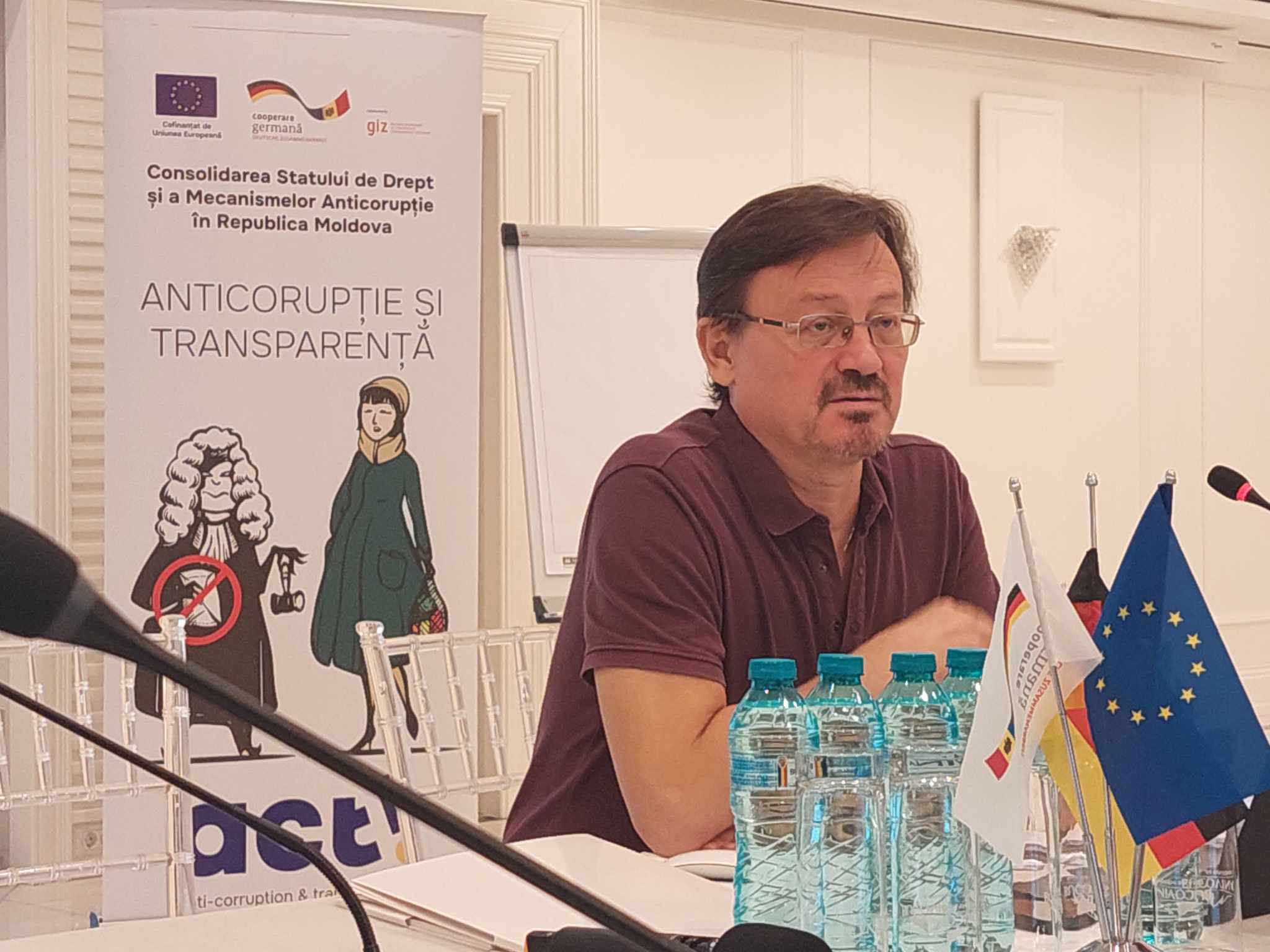
Oleg Khomenok, a member of the Board of Directors of the Global Investigative Journalism Network and a senior media advisor at Internews Network, brought over 25 years of experience in journalism, media education, and the management of investigative reporting and media support projects in the post-Soviet region.
In his opening remarks during the training, Khomenok warmly welcomed the interest shown by journalists from the Republic of Moldova in enhancing their skills for acquiring information and revealing hidden realities often obscured by individuals with vested interests.
Khomenok stated, 'Investigative journalism is highly developed in the Republic of Moldova, which is why many countries could learn a great deal from the journalists here. Throughout the training, we will delve into what constitutes journalistic investigation, how to identify topics, and how to formulate hypotheses. We will extensively cover the action algorithm, including the use of OSIND (open sources), which aids journalists in gathering as much information as possible. We will also address techniques for data visualization and implementing cybersecurity measures.'
Khomenok systematically presented each element included in the program. The foremost and most crucial lesson he conveyed to the participants was that 'investigative journalism reveals new, previously unknown information. If the hypothesis is also found in other materials already in the public domain, then it can no longer be termed an investigation.' From this foundation, Khomenok proceeded to present techniques for identifying investigative topics, along with the steps required and the development of a work plan. Each piece of information was accompanied by a toolkit and illustrative examples.
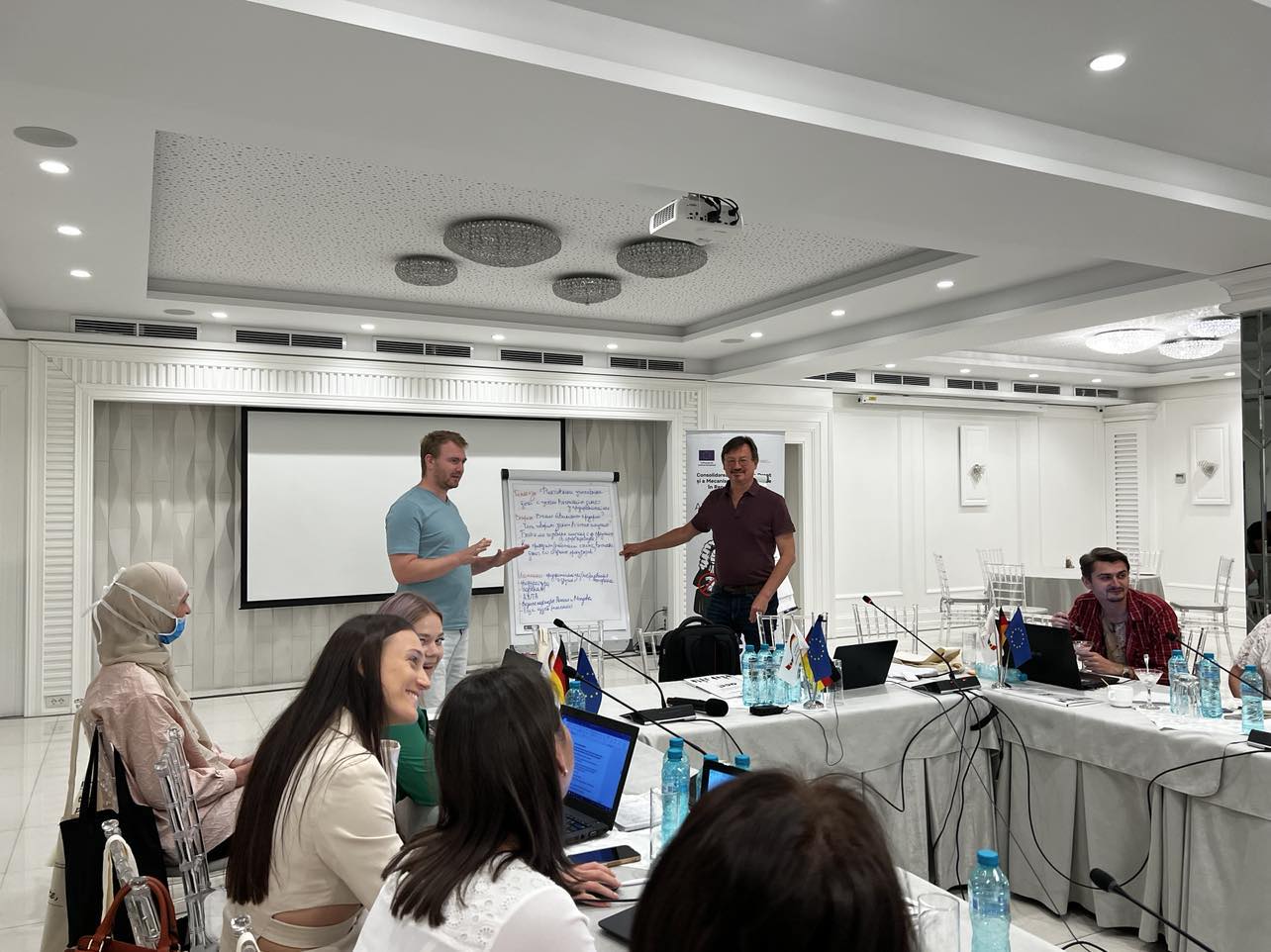
The participants were actively engaged in working groups, presenting hypotheses that could serve as the foundation for launching impactful investigations. Together
with the trainer, they constructed a work plan to initiate these investigations.
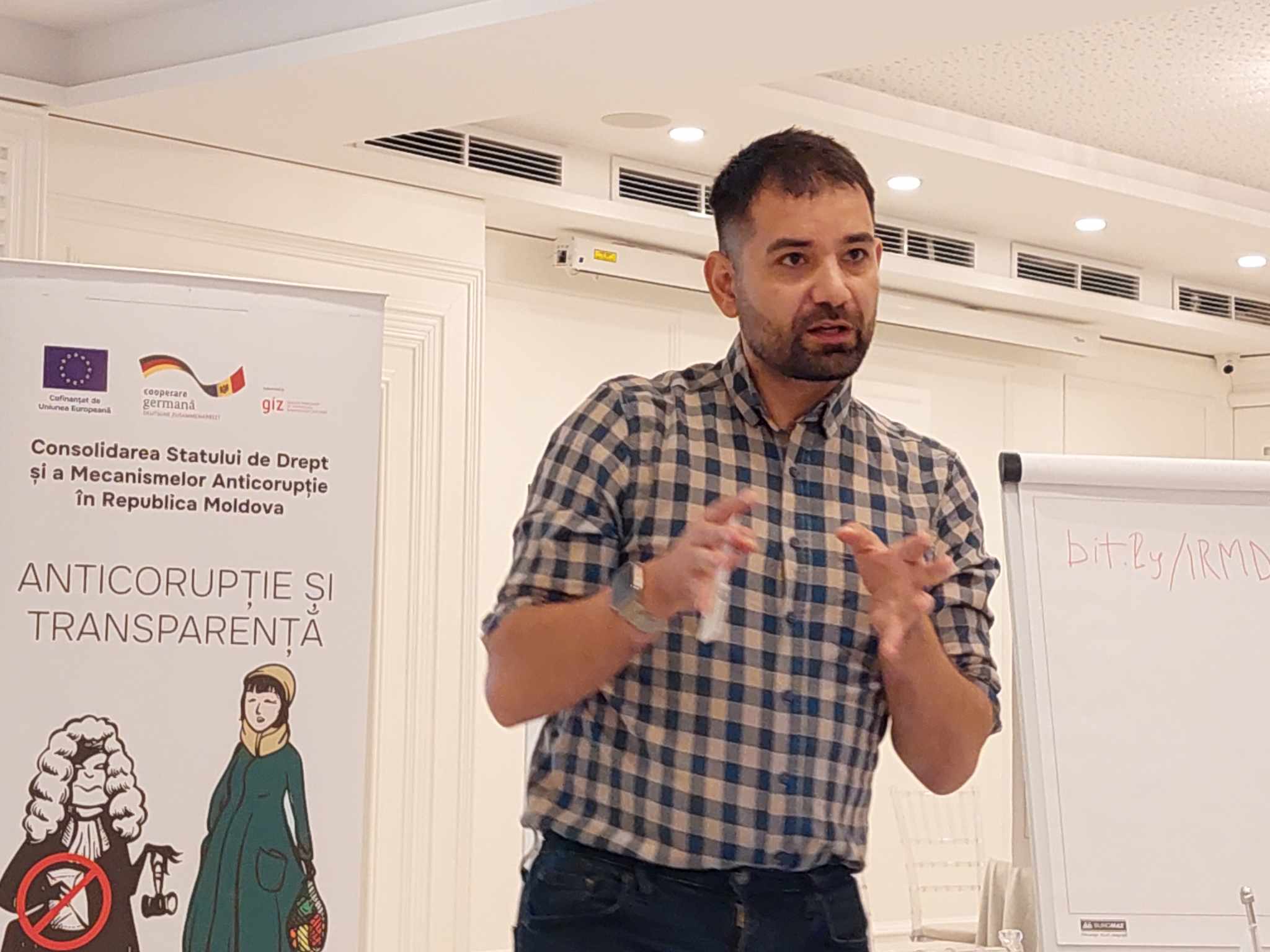 Mykhailo Koltsov is a Senior Data Consultant with the Digital Development Global Practice at the World Bank Group. He focuses on assessing the quality of ICT infrastructure using data analysis methods and algorithms for combining different data sources. Simultaneously, he held the position of a senior lecturer in journalism at Kyiv National University " Kyiv-Mohyla Academy".
Mykhailo Koltsov is a Senior Data Consultant with the Digital Development Global Practice at the World Bank Group. He focuses on assessing the quality of ICT infrastructure using data analysis methods and algorithms for combining different data sources. Simultaneously, he held the position of a senior lecturer in journalism at Kyiv National University " Kyiv-Mohyla Academy".
"We will delve into technical details and address a fundamental question: how memorable will your investigative journalism be? We will explore data visualization techniques, discovering how with simple tools, our investigations can stand the test of time," Koltsov explained.
His segment of the training was dedicated to cybersecurity. Recognizing that investigative journalists often encounter various risks in their work, Koltsov provided recommendations and techniques to shield journalists from external negative influences. Additionally, he introduced new approaches to working with data and presented innovative media techniques that, when applied, enhance the quality of the final material.
Janine Baudach, the Project Manager of GIZ Moldova, emphasized the pivotal role of journalists, stating that they serve as a crucial link between the state and its citizens. Consequently, they play an essential role in advancing democracy and the rule of law.
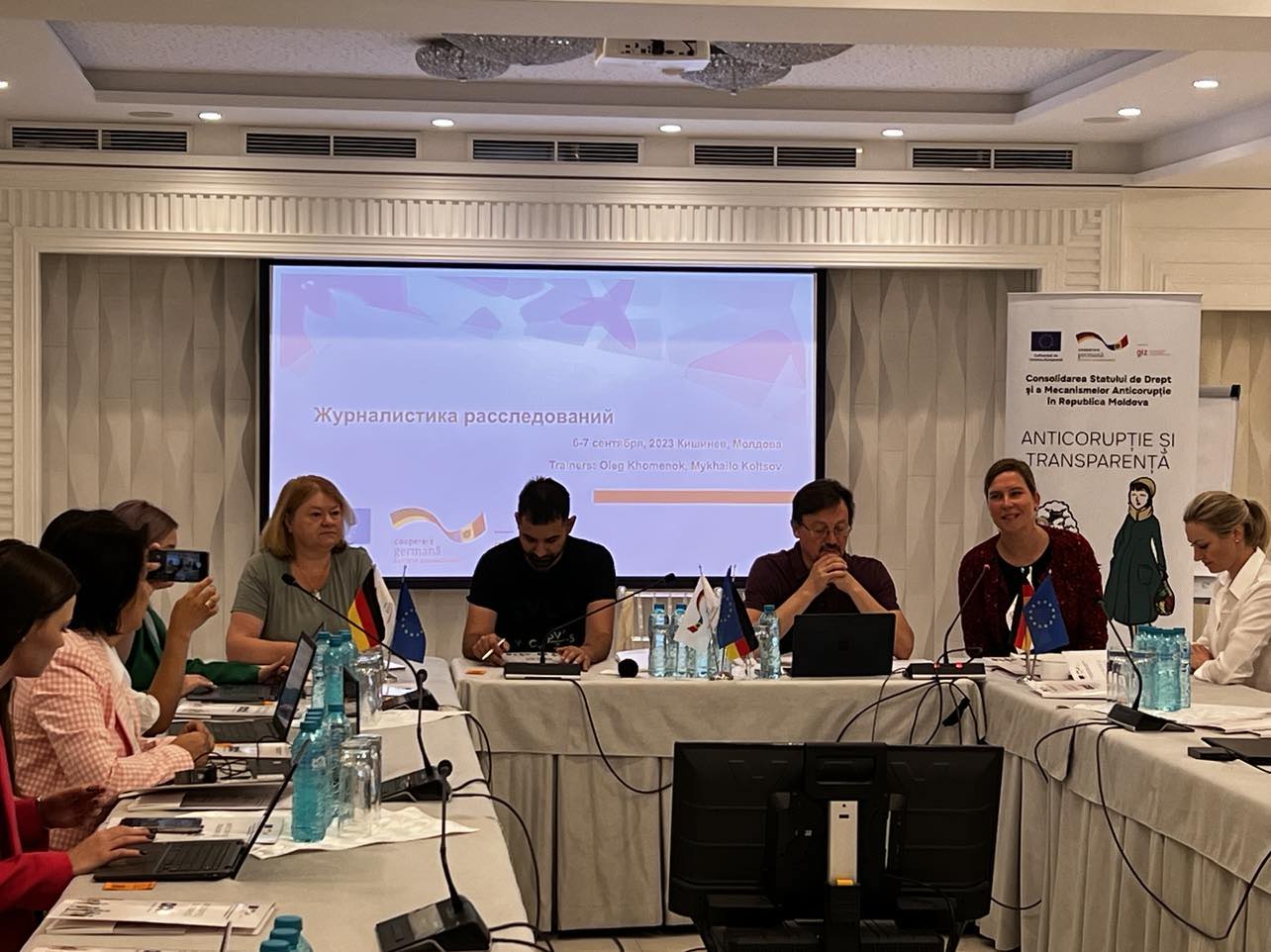
This masterclass is of great importance. Considering that journalism is often regarded as the fourth pillar of democracy, it serves as a vital bridge between the state and its citizens. It is crucial to have individuals like you in our society. Thanks to journalists, we can raise awareness about government actions and make it more accountable to its citizens. I hope you will acquire new investigative techniques and delve into current topics," said Janine Baudach.
"This network holds significant value, and we appreciate GIZ's efforts in supporting investigative journalism. Our goal is to strengthen this network so that we can investigate critical issues for the citizens of the Republic of Moldova. Journalists have the power to effect meaningful change, especially through investigative reporting. We will be launching a grant contest for journalists, and I encourage all of you to actively participate. This stage is particularly important, especially with the presence of our two exceptional international trainers. You will gain valuable skills," emphasized Cornelia Cozonac, the President of CIJM.
The next capacity training for the Investigative Journalists Network in Moldova is scheduled for October and will feature experts from Romania. You can find information about the training on the anticorruptie.md portal.
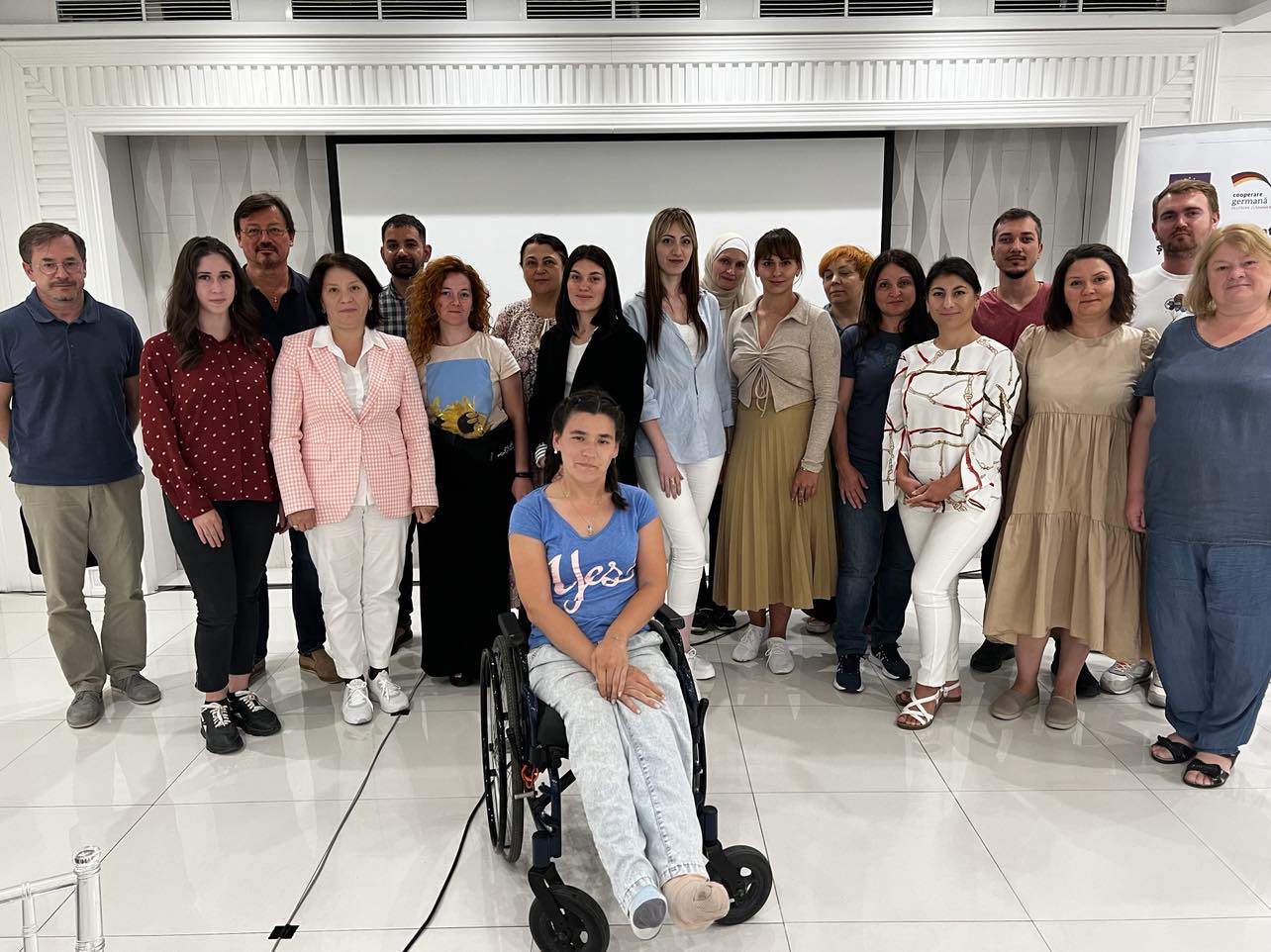
Textele de pe pagina web a Centrului de Investigații Jurnalistice www.anticoruptie.md sunt realizate de jurnaliști, cu respectarea normelor deontologice și sunt protejate de dreptul de autor. Preluarea textelor știrilor și a investigațiilor jurnalistice se realizează în limita maximă de 500 de semne. În mod obligatoriu, în cazul paginilor web (portaluri, agenții, instituţii media sau bloguri) trebuie indicat şi linkul direct la articolul preluat de pe www.anticoruptie.md în primul alineat, iar în cazul posturilor de radio și TV – se citează obligatoriu sursa.
Preluarea integrală a textelor se poate realiza doar în condiţiile unui acord prealabil semnat cu Centrul de Investigații Jurnalistice.
Donors:
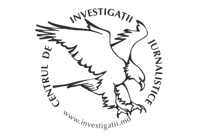
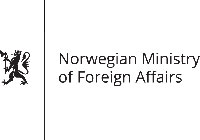

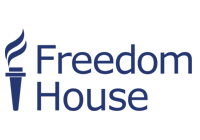
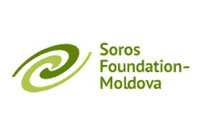
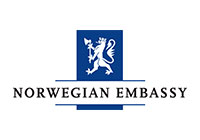
Partners:









